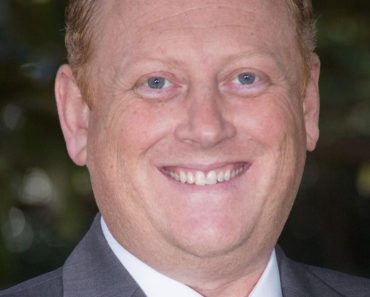[ad_1]
New research from eMoney Advisor suggests that when it comes to chasing down their financial goals, many clients have a difficult time finding the motivation to even stay in the race.
Released last week during the 10th annual eMoney Summit event, the analysis coincided with the theme of this year’s virtual gathering of more than 1,600 participants, which was “beyond the plan.”
During the keynote presentation that kicked off the conference, eMoney CEO Susan McKenna said the 2023 theme speaks to the evolving role advisors play in the lives of the people they serve.
To boil the job of an advisor down to someone who simply makes recommendations and manages money strips the humanity from the profession and ignores the fact that many practitioners enter the business with a desire to make a positive impact.
It also doesn’t take into account that on a daily basis, advisors are helping clients make some of the most important decisions of their lives.
“I think we can all agree that the work you do to support your clients goes beyond creating one single financial plan. The time, effort and energy that you put into building trust, strengthening relationships and understanding goals and values produces much more than a financial plan,” she said. “You’re creating a sense of comfort, a feeling of confidence. You’re fostering a sense of purpose and opening up a space for your clients to tell their families and loved ones, ‘hey, we’re going to be OK.”

eMoney Advisor
eMoney’s research captured insights from advisors and clients to better understand the impact financial psychology and the use of technology have on planning outcomes. According to the analysis, tech-forward advisors who take the time to figure out what makes their clients tick see the biggest gains in terms of client satisfaction, loyalty and referrals.
Emily Koochel, head of financial wellness programs at eMoney Advisor, said the firm’s previous research tipped it to the fact that many clients have a hard time getting their goals and their behaviors in sync. The research finds that nearly half of all clients (45%) struggle with a lack of motivation.
READ MORE: Wealthtech startup with veteran leadership wants to give clients the ‘ideal advice experience’
However, that number changes among advisory clients that work with advisors who use technology like client portals to bring greater understanding into each interaction. About 67% of the clients of tech-forward advisors said their financial advisor motivates them to achieve their financial planning goals, according to the study.
“Understanding motivation behind human financial behavior is essential because the majority of us, clients included, really have a mismatch between our goals and our behaviors. If you think about it, we all have this version of our ideal self — the ideal self is doing all the right things,” Koochel told Financial Planning. “But as a part of the human condition, we simply are not perfect. And our behavior doesn’t always align with who we hope to be on those ideal days. So what’s important is paying close attention to clients to their behaviors, in terms of money management, spending, saving, etc. And when we start to notice those behavior gaps … it’s about us understanding those and what we can do.”
When it comes to actions that most positively impact client satisfaction, reduce financial anxiety and cultivate greater trust in the relationship, matters of the mind are mentioned more frequently than money.
Clients said advisors who help them identify meaningful personal and financial goals; take the time to understand values and priorities before delivering financial advice; and make an effort to learn about the client’s money behaviors are the most trusted.
Clients also valued the ability to communicate recommendations in terms that are understandable. When asked about the frequency with which their advisors are taking these actions, end clients indicated that it averages to less than 50% of the time.
End-clients who work with “FinPsych forward” advisors — defined as advisors who incorporate eight or more financial psychology actions into their practice — are turning clients into champions of their brands.
Advisors who embrace financial physiology see nearly 2.5 times the referrals per year when compared to FinPsych averse advisors, according to the study.
Tech savvy advisors are also reaping the benefits of their approach. The study finds that 56% of clients who actively use a client portal make referrals to their advisor twice as much as clients who don’t.
eMoney Advisor Head of Financial Planning Matt Schulte said the point about speaking to clients in terms they can understand may seem minor, but it can have a major impact on the client motivation that is so lacking across the industry.
“Everyone’s financial literacy is different. And so when we think about FinPsych, what’s important in my mind is reading the room and making sure you’re not talking past the client. It’s hard to be motivated when you’re struggling to understand everything and might be reluctant to admit it,” Schulte said in an interview. “Take a step back and actually make sure that you’re conversing in the right way. And if you need to do this, set the table with some basics.
“Educate them a little bit to try to get them closer to your mindset when you’re advising them.”
The “beyond the plan” probe is the latest piece of research dropped by eMoney this year. During the Financial Planning Association’s annual conference in September, eMoney teamed up with the FPA to to understand the impact technology is having on client relationships within the industry.
The study emphasizes that while access to technology is crucial, what matters most is how financial planners utilize client portals and other tools at their disposal.
[ad_2]
Source link







